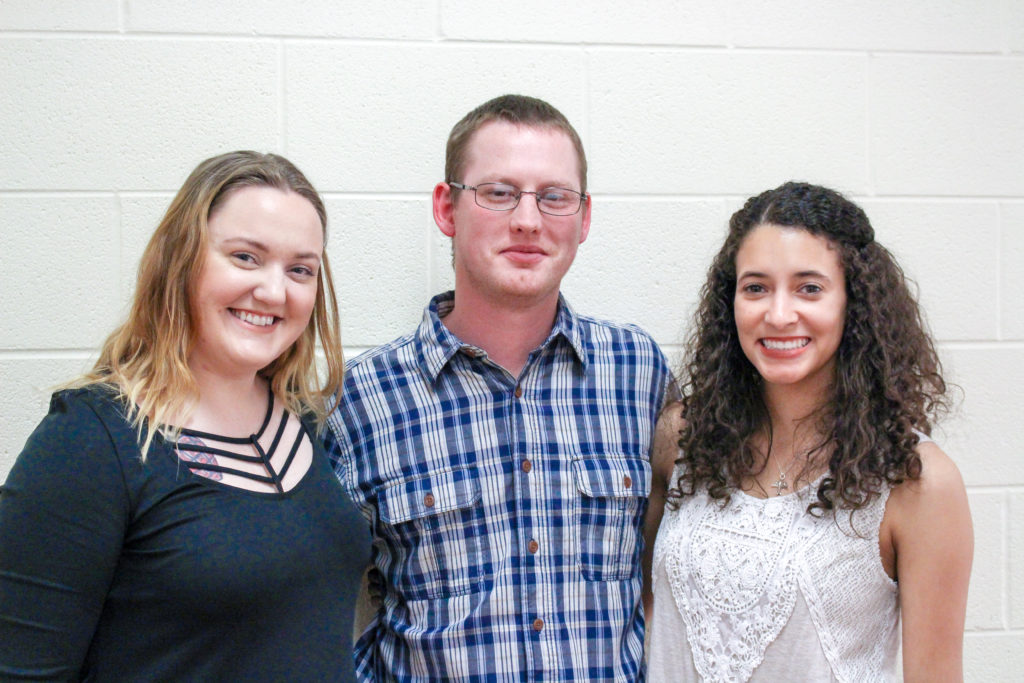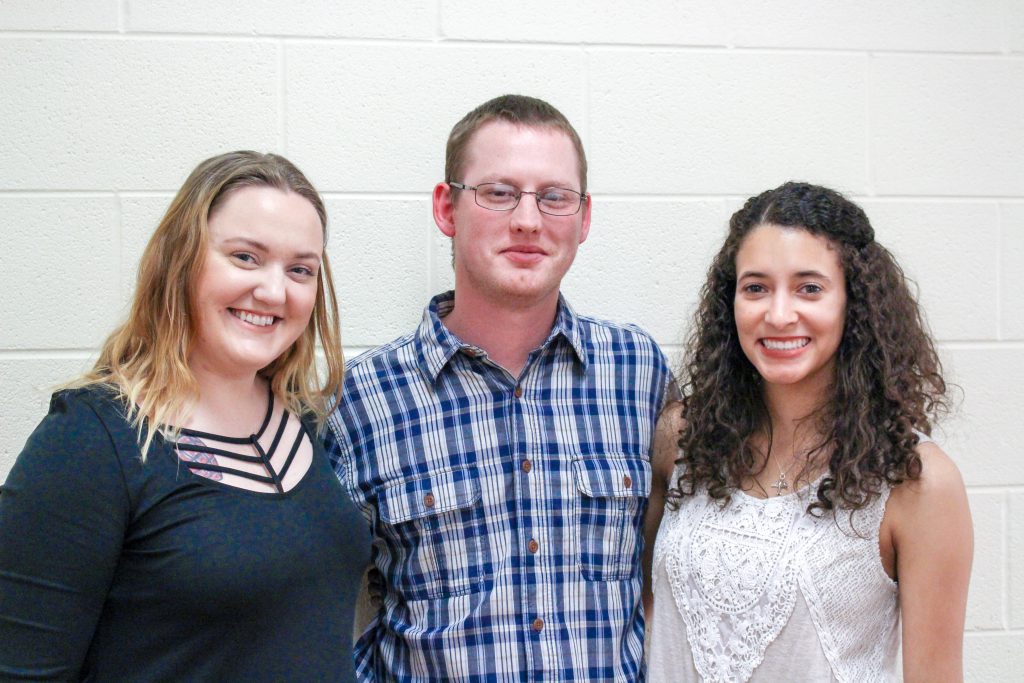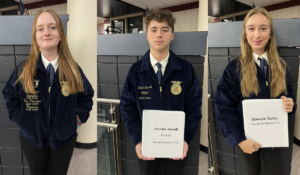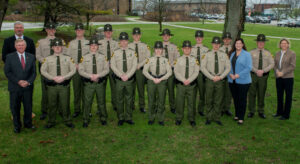Rio Grande Honors program senior projects

Pictured left to right: University of Rio Grande Honors Program seniors Chobee Sheets, Matt Blair and Cydnie Few.
 RIO GRANDE, Ohio – The University of Rio Grande’s Honors Program works to engage gifted students through specialized curriculum, honors seminars, and a capstone project that challenges all perceptions to achieve maximum potential. Each year, the program’s seniors present their senior projects to faculty, administration and classmates on campus. Dr. Heather Duda, interim dean of the College of Arts and Sciences and honors program director, said the program’s seniors, Matt Blair and Chobee Sheets, as well as junior Cydnie Few, have successfully completed their presentations for 2017. She said her students put several months of work and research into their projects.
RIO GRANDE, Ohio – The University of Rio Grande’s Honors Program works to engage gifted students through specialized curriculum, honors seminars, and a capstone project that challenges all perceptions to achieve maximum potential. Each year, the program’s seniors present their senior projects to faculty, administration and classmates on campus. Dr. Heather Duda, interim dean of the College of Arts and Sciences and honors program director, said the program’s seniors, Matt Blair and Chobee Sheets, as well as junior Cydnie Few, have successfully completed their presentations for 2017. She said her students put several months of work and research into their projects.
“This is a big project that takes a lot of research and a lot of focus. They create a portfolio in the fall semester and then take the material and create a 15 to 20 minute presentation from it for the spring semester. It takes a lot of time and effort to do this project. They were all outstanding,” Duda said. “The entire senior project is important because it allows the students to reflect on what they’ve done in college and take that information to make a project of interest to them. It’s about self-reflection and looking at who they are and where they want to go as they enter into the academic and professional conversations in their fields.”
Matt Blair, a psychology major, said he chose his project, “Crossing the River Stigma: Appalachia’s Opioid Epidemic,” to promote a better understanding of the opioid epidemic and shed light on cultural and socioeconomic factors that have exacerbated the problem in Appalachia to better define the problem of addiction and reduce stigma. He said he hopes to continue similar research after graduation.

“Addiction is a concerning problem in Appalachia. I chose this project because looking at the problem from different perspectives helps us get closer to solving it. I’m considering continuing this work by getting a master’s degree in mental health counseling and possibly addiction counseling,” Blair said. “My classes have really helped me to prepare for this project. I wanted to look at different methods to defining and solving the problem of addiction, and the problem-solving skills I have learned through the psychology department prepared me for the critical thinking involved in that process.”
Sheets, a chemistry major, said through her project, “Moving Drug Discovery from Labs to Computers: Finding Potential Antibiotics for Resistant Bacteria,” she sought to correlate lab results with data produced by a computer program designed to simulate interactions between common antibiotics and resistant bacteria in hopes of applying computer technology to drug discovery. She said combining work from her classes throughout her time at Rio prepared her for her research.
“Antibiotic resistance is a big problem we are seeing in the chemistry field. People get sick and we can’t treat the illness because bacteria have stopped responding to the antibiotic, so we are looking for a new target to make these antibiotics effective. My goal with this was to show how computer technology can bring us even closer to the results we need,” Sheets said. “Rio has helped me be more confident and comfortable in myself and my work. The smaller class sizes helped me to get into class discussions, which really helped me to learn, ask questions and voice my own thoughts.”
Few, an early education major, chose to create a video project for her presentation. “Academic Wanderlust: A Presentation on Studying Abroad,” gives her first-hand account of the study abroad opportunities the University of Rio Grande offers current students and international students, as well as the deep Welsh connection shared at Rio. Few also interviewed three Welsh students who visited Rio for two weeks during the fall to get the perspective of students studying abroad in America.
“Studying abroad at the University of Wales, Trinity St. David in the fall of 2015 was a wonderful experience. Having that connection to the school and the Welsh culture made me want to document the experiences of the girls who came here to Rio,” Few said. “I’m so grateful for my experience and am glad Rio provides these opportunities for students. I hope to use what I learned about teaching from studying abroad in my own classroom once I graduate.”
Duda said she is very proud of the work the Rio Grande Honors Program students put in during their final year at Rio and wishes them luck for their futures.









